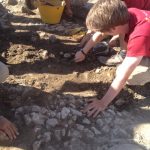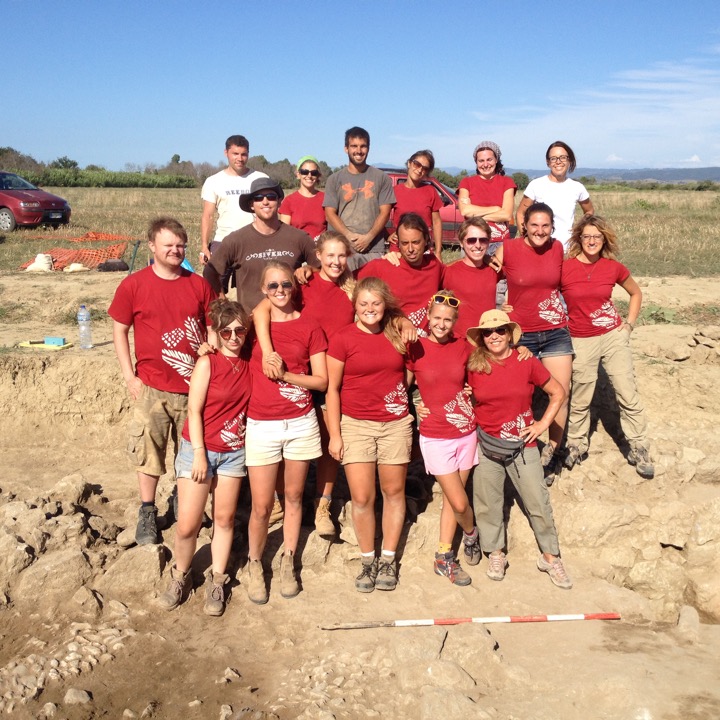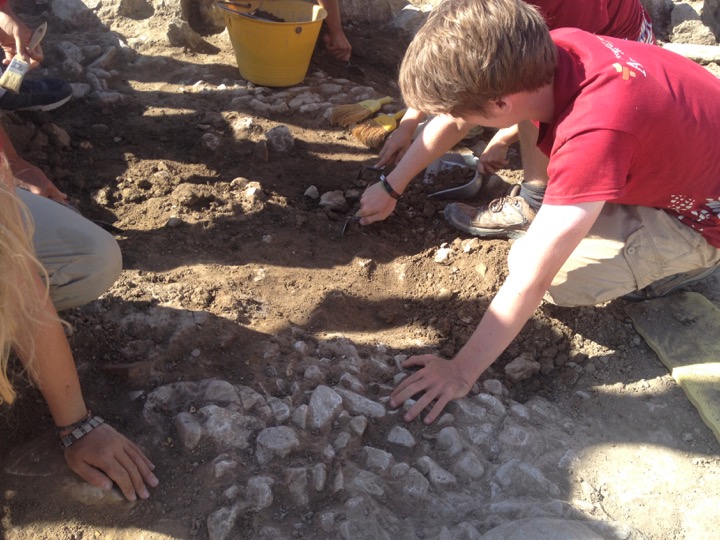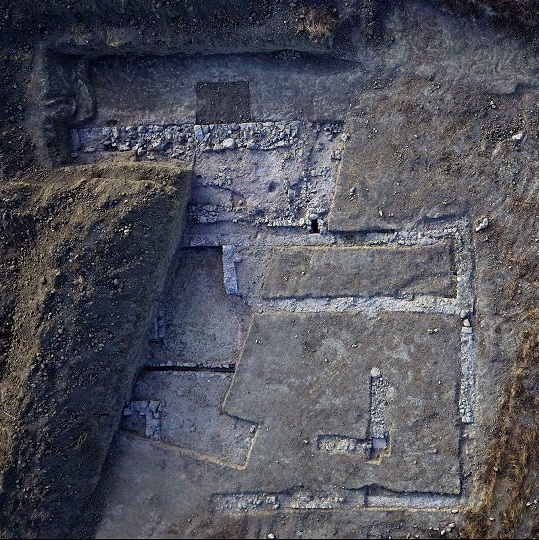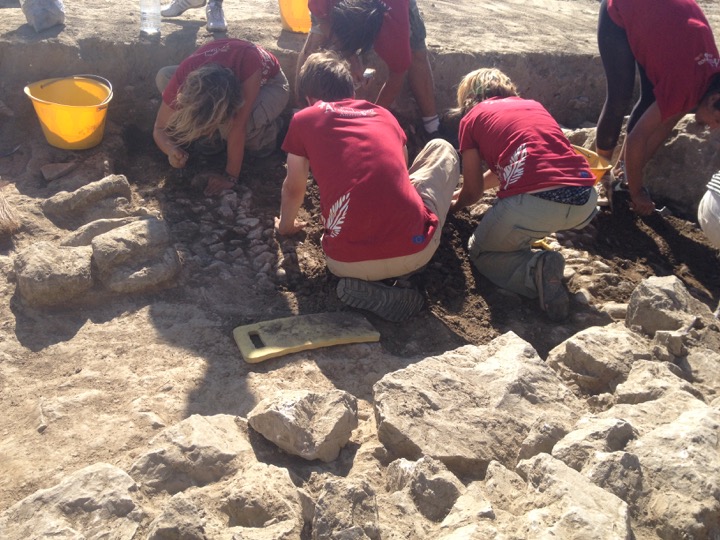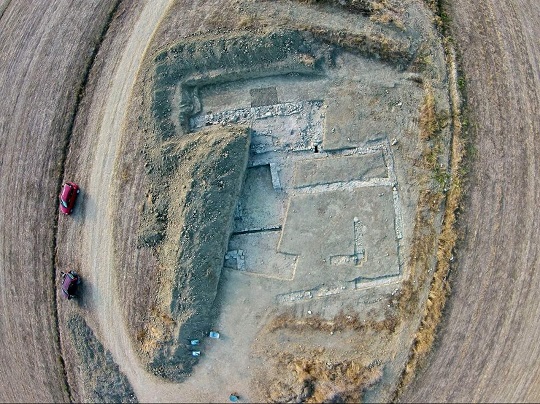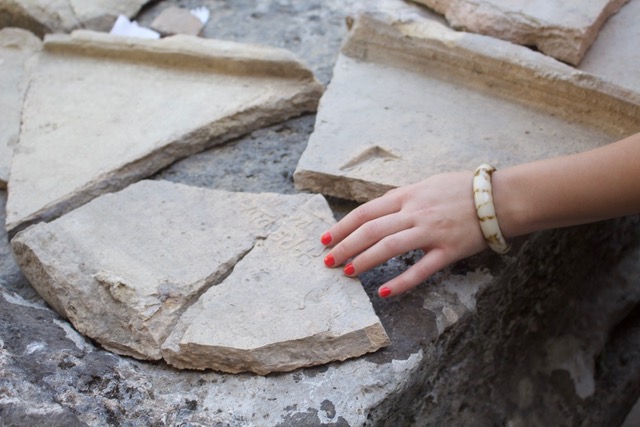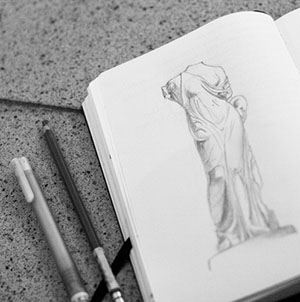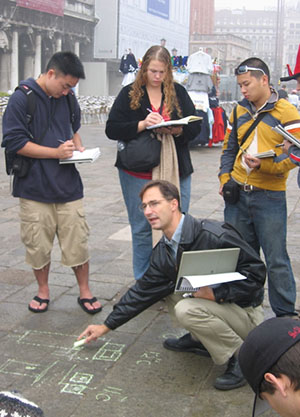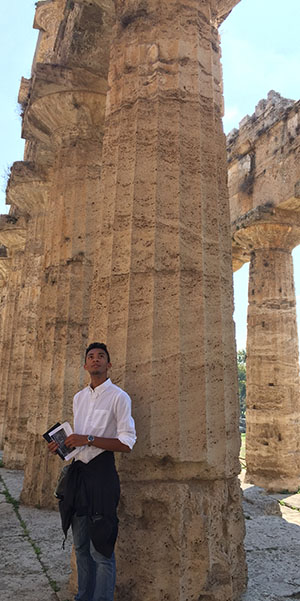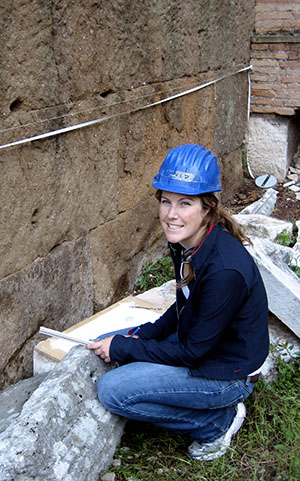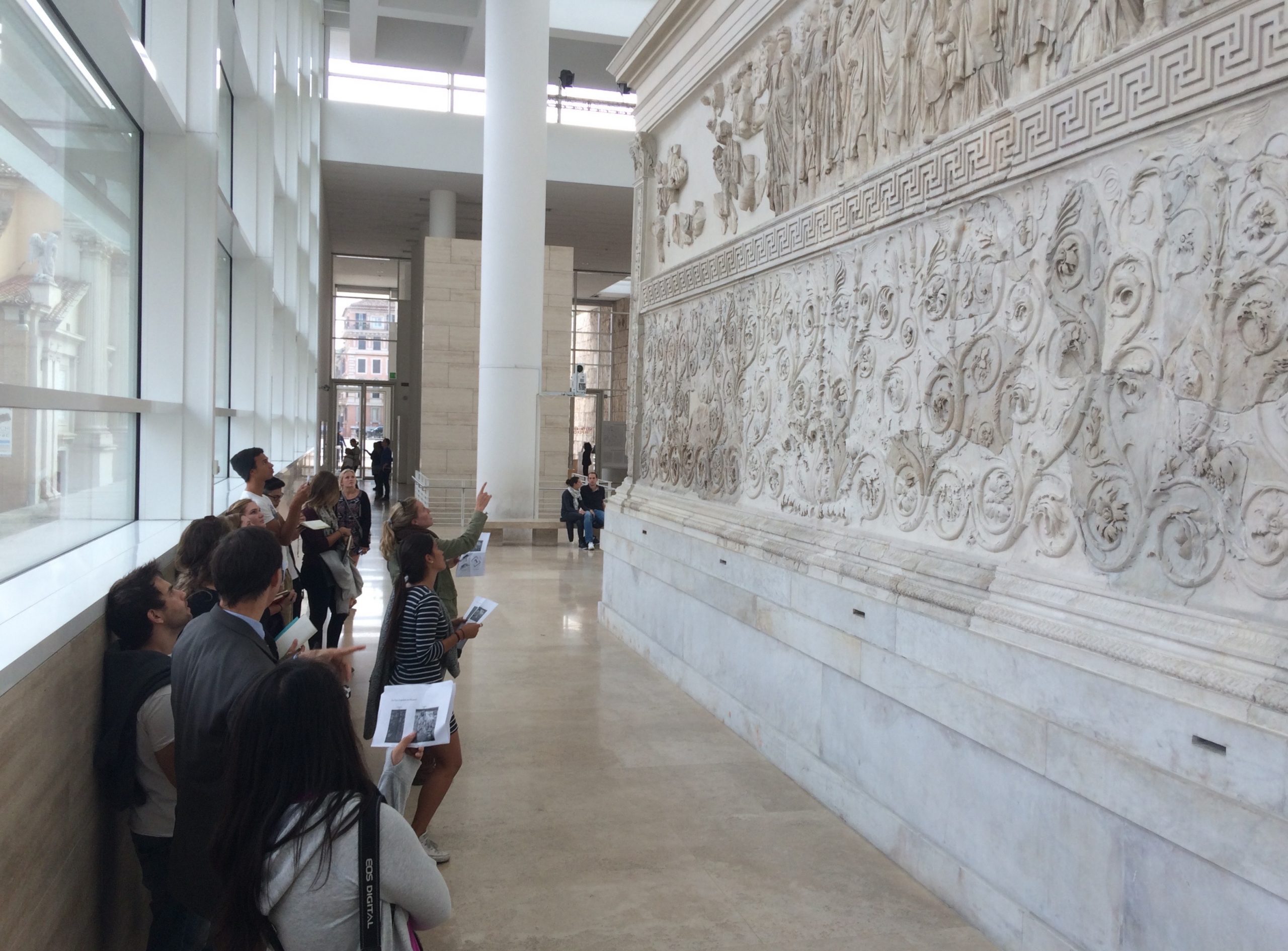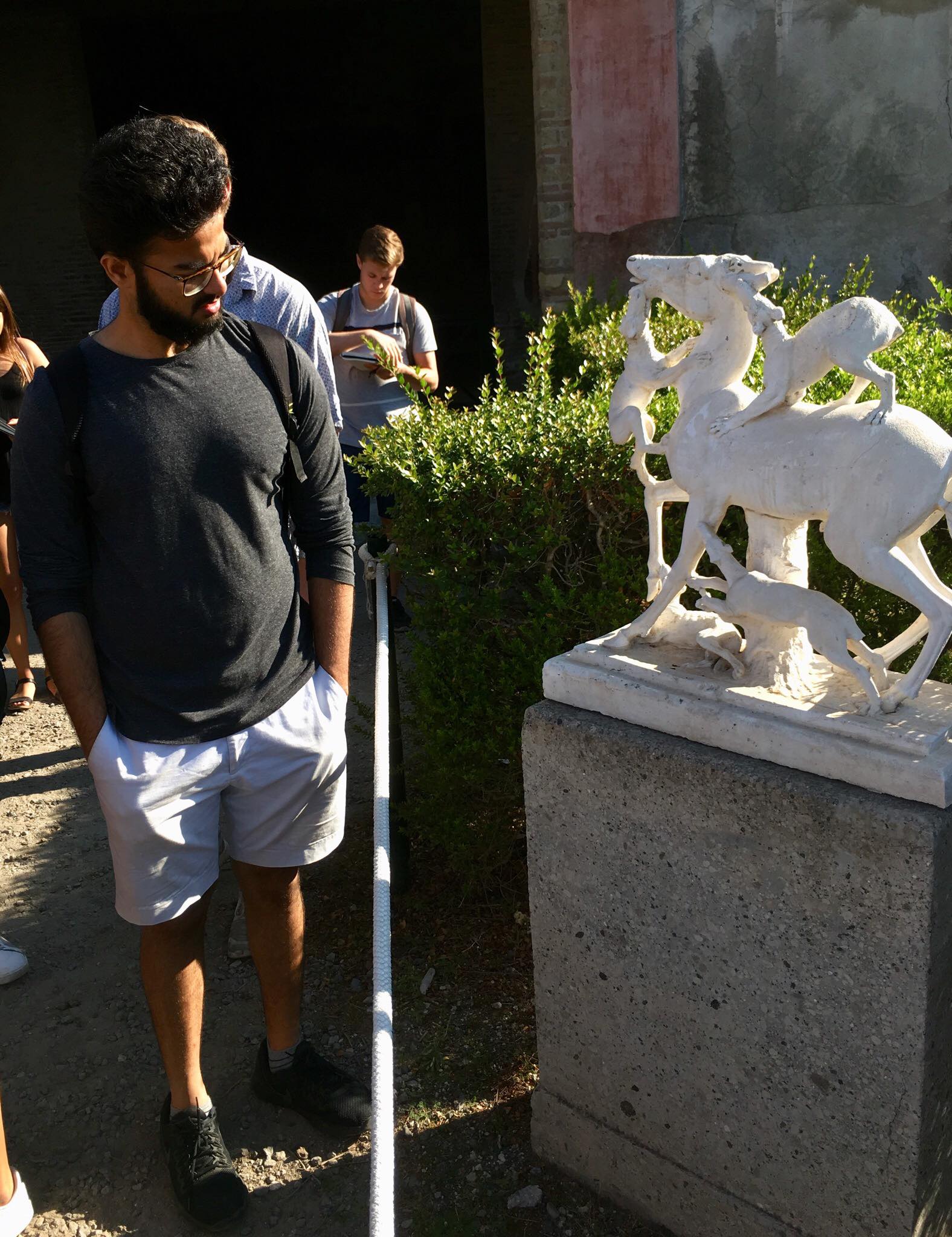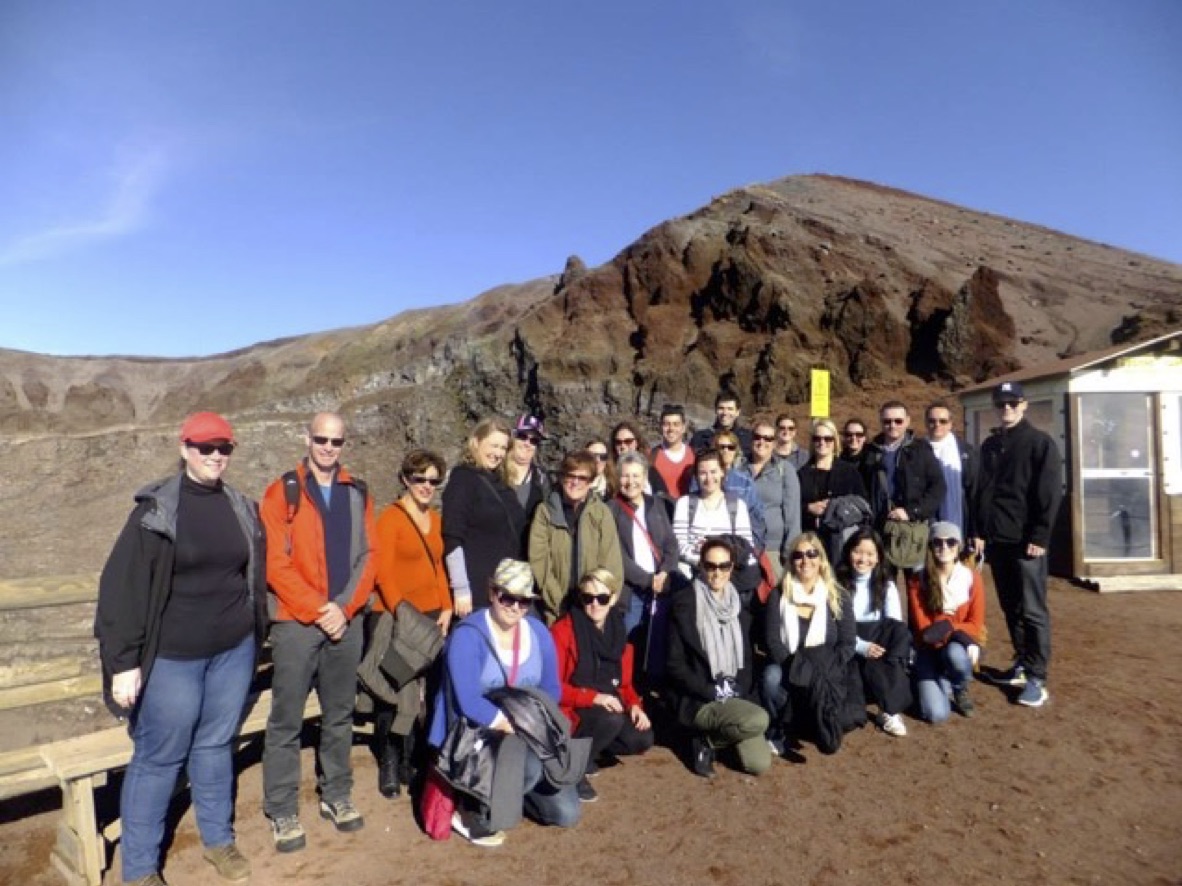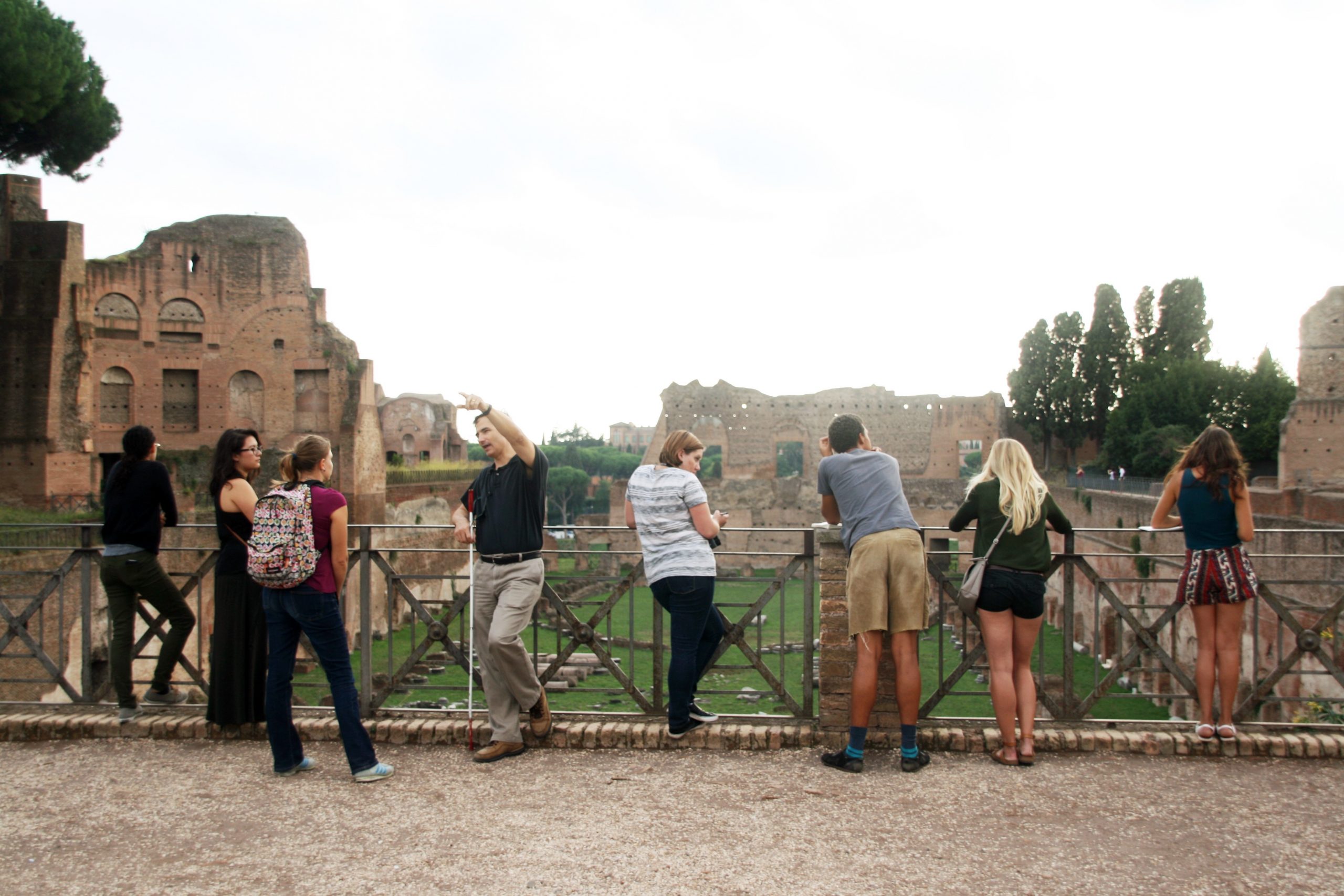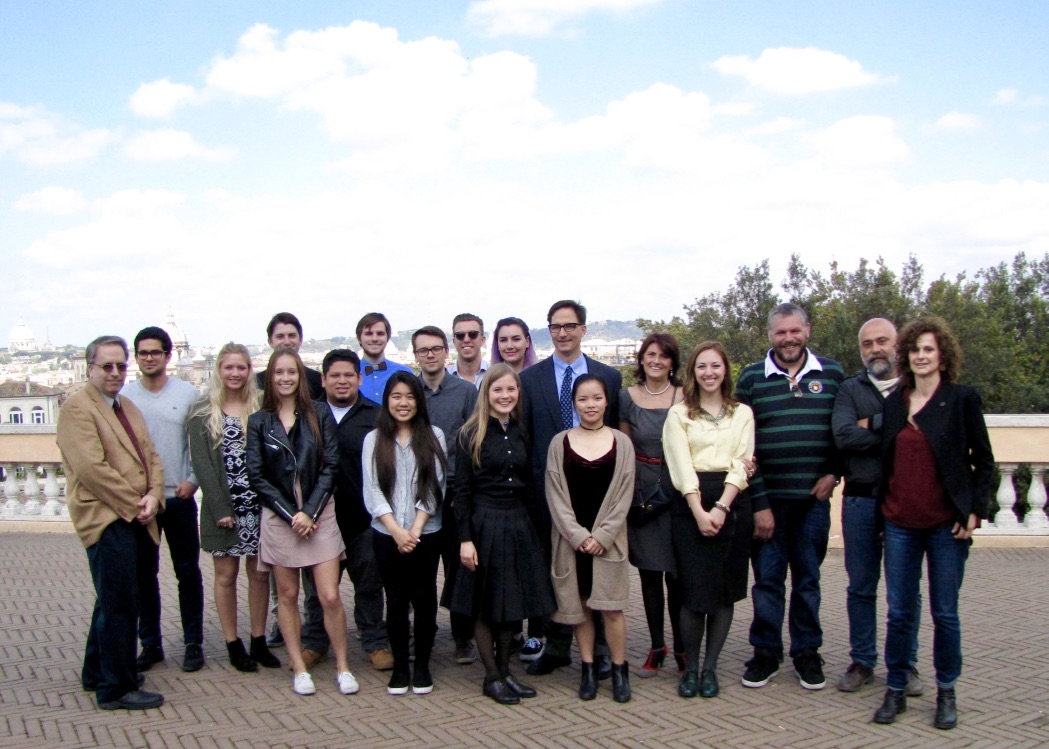Academic Initiatives Abroad is offering the Alberese Archeological Field School “City, Villa and Trade in Roman Etruria” in collaboration with Alberese Archeological Project Cultural Association. Those participating will also have the exclusive opportunity to attend the 5-day introductory program: Uncover Rome, at the AIA Rome Center. Explore the layers of ancient Rome and the rich diverse cultures of coastal Tuscany.
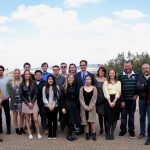 Uncover Rome, AIA Rome Center – July 10-14, 2019
Uncover Rome, AIA Rome Center – July 10-14, 2019
Alberese Archeological Field School – July 15-August 9, 2019
Alberese Archeological Field School
City, Villa and Trade in Roman Etruria
July 15 – August 9, 2019
The field school excavations focus on a newly identified Roman residential and production settlement within the territory of Rusellae, an ancient Roman city of Etruscan origin located at the mouth of the Ombrone River on the Tyrrhenian Sea. The site is near the modern town of Roselle near Grosseto, Tuscany. The site was strategically located for shipping routes and commercial traffic in the Mediterranean, which will allow the field school to investigate the regional and international trade networks at the core of the Roman economy. Previous excavations have revealed richly adorned residential quarters, workshops and storage rooms, in use between the Republican period and late Antiquity.
Who is the program for?
The Field School is aimed at students, early career scholars and those passionate about archeology, classics, art history, anthropology, and cultural heritage management. No prior experience is required. Enrollment is offered as either a three-credit course or as certificate of participation.
The number of participants is limited to ensure an exceptional learning experience.
Program highlights
- 4 weeks in Italy
- The program runs from July 15 – August 9, 2019.
- Application deadline: March 1, 2019 (late applications will be accepted should spaces remain)
- Maximum number of participants: 12
Field School Details
The well-preserved excavation site is located on the site of what was once the powerful Etruscan city of Rusellae, which was later transformed into a Roman colony when captured in 294 BCE. The excavations focus on a positio, or a Roman residential and production settlement, within the territory of Rusellae. The field school will give students a well-rounded understanding of both the nature and scope of modern archaeological analysis. The site’s strategic location between the ancient coastline on the Tyrrhenian/Mediterranean Sea and the Ombrone River, provides a deeper investigation of Roman regional and international trade networks that existed between the late Republican and late Imperial periods (3rd century BCE-4th century CE).
The excavations will take place in the residential area of the complex. While it is still unexcavated, evidence of mosaic pavements and the presence of luxury glass objects hint at the nature of this domestic environment. Previous excavation seasons, which focused on the production areas of the site, revealed workshops for metal-working and for Egyptian Blue pigment, which was previously only found at the rich port at Pozzuoli in the Bay of Naples.
The excavations will be carried out by the Alberese Archaeological Project, in collaboration with the Soprintendenza Archeologica, Belle Arti e Paesaggio per le province di Siena, Grosseto e Arezzo and John Cabot University, and in association with the British School at Rome and Michigan State University.
The field school is an integral part of significant research excavations, and participants will contribute actively to this through their work.
The Research Project
The interdisciplinary Research Project, established in 2009, investigates Roman settlement trends and international exchange networks between the mid-Republican period and late Antiquity. Current research focuses on the relationship between local and international economies, and the relationship between towns and territory.
In addition to the main site, the project also includes two other sites located at the mouth of the River Ombrone at the Mediterranean: a) the excavation of the river port and manufacturing district at Spolverino, which was active between the 1st-6th centuries CE, and produced glass, bone and metal objects on a scale unmatched in the area; and b) the excavations of the temple sanctuary dedicated to Diana Umbronensis at Scoglietto, which was situated as a ‘marker’ for Mediterranean trade at the mouth of the river. Other ongoing studies include landscape and infrastructure studies centered around the Via Aurelia vetus, a road that linked the area to Rome.
Current research themes focus on the Roman economy between regionalization and globalization; on the relationship between cities and rural settlements; and on manufacture and workshop organization.
Field school costs
Courses are offered as for-credit and as certificate of participation. Preference will be given to students taking the 4-week course.
Fees include tuition, accommodation, meals Monday-Friday (breakfast, picnic lunch, restaurant dinner), and transportation from lodgings to site on working days. Travel to and from Italy/Grosseto; and weekend meals and activities are not included.
Approved applications will be asked to submit a nonrefundable deposit payment (500 Euro for the four-week course; 250 Euro for the two-week courses) to ensure a space in the program. The remaining portion of the fee must be paid no later than May 1, 2019.
Cancellation: with notice provided before May 12, 2019 the fee (minus the deposit) will be refunded, after this time it is non-refundable.
Three-credit course (credits issued by John Cabot University)
4 weeks (July 15 – August 9, 2019) 4000 Euro
Certificate of participation courses (certificate issued by the Alberese Archaeological Project)
4 weeks (July 15 – August 9, 2019) 3800 Euro
2 weeks July (July 15 – 26, 2019) 2100 Euro
2 weeks August (July 29 – August 9, 2019) 2100 Euro
Practical Details
Insurance: to work on site it is mandatory to have insurance that covers the period of your stay and a copy of this must be submitted in advance. Similarly, all participants must have had a tetanus vaccination or booster within the past ten years; no other vaccinations are required
Tools: please bring a 4" WHS trowel (available in on-line stores). All other equipment is provided by the project.
Clothing: safety boots are required for the excavation as well as appropriate clothes (long or short trousers). Please remember a hat, flask for water, sunscreen and insect repellent.
Working days: Monday to Friday – 8.00 am to 5.00 pm
Arrival and departure dates: participants are asked to arrive on the Sunday before the first working day and depart on the Saturday after the last working day of their chosen period of participation. Those participants enrolled in Uncover Rome (see below) will travel from Rome to Grosetto by train on Sunday before the first working day.
The well-preserved excavation site is located on the site of what was once the powerful Etruscan city of Rusellae, which was later transformed into a Roman colony when captured in 294 BCE. The excavations focus on a positio, or a Roman residential and production settlement, within the territory of Rusellae. The field school will give students a well-rounded understanding of both the nature and scope of modern archaeological analysis. The site’s strategic location between the ancient coastline on the Tyrrhenian/Mediterranean Sea and the Ombrone River, provides a deeper investigation of Roman regional and international trade networks that existed between the late Republican and late Imperial periods (3rd century BCE-4th century CE).
The excavations will take place in the residential area of the complex. While it is still unexcavated, evidence of mosaic pavements and the presence of luxury glass objects hint at the nature of this domestic environment. Previous excavation seasons, which focused on the production areas of the site, revealed workshops for metal-working and for Egyptian Blue pigment, which was previously only found at the rich port at Pozzuoli in the Bay of Naples.
The excavations will be carried out by the Alberese Archaeological Project, in collaboration with the Soprintendenza Archeologica, Belle Arti e Paesaggio per le province di Siena, Grosseto e Arezzo and John Cabot University, and in association with the British School at Rome and Michigan State University.
The field school is an integral part of significant research excavations, and participants will contribute actively to this through their work.
The interdisciplinary Research Project, established in 2009, investigates Roman settlement trends and international exchange networks between the mid-Republican period and late Antiquity. Current research focuses on the relationship between local and international economies, and the relationship between towns and territory.
In addition to the main site, the project also includes two other sites located at the mouth of the River Ombrone at the Mediterranean: a) the excavation of the river port and manufacturing district at Spolverino, which was active between the 1st-6th centuries CE, and produced glass, bone and metal objects on a scale unmatched in the area; and b) the excavations of the temple sanctuary dedicated to Diana Umbronensis at Scoglietto, which was situated as a ‘marker’ for Mediterranean trade at the mouth of the river. Other ongoing studies include landscape and infrastructure studies centered around the Via Aurelia vetus, a road that linked the area to Rome.
Current research themes focus on the Roman economy between regionalization and globalization; on the relationship between cities and rural settlements; and on manufacture and workshop organization.
Courses are offered as for-credit and as certificate of participation. Preference will be given to students taking the 4-week course.
Fees include tuition, accommodation, meals Monday-Friday (breakfast, picnic lunch, restaurant dinner), and transportation from lodgings to site on working days. Travel to and from Italy/Grosseto; and weekend meals and activities are not included.
Approved applications will be asked to submit a nonrefundable deposit payment (500 Euro for the four-week course; 250 Euro for the two-week courses) to ensure a space in the program. The remaining portion of the fee must be paid no later than May 1, 2019.
Cancellation: with notice provided before May 12, 2019 the fee (minus the deposit) will be refunded, after this time it is non-refundable.
Three-credit course (credits issued by John Cabot University)
4 weeks (July 15 – August 9, 2019) 4000 Euro
Certificate of participation courses (certificate issued by the Alberese Archaeological Project)
4 weeks (July 15 – August 9, 2019) 3800 Euro
2 weeks July (July 15 – 26, 2019) 2100 Euro
2 weeks August (July 29 – August 9, 2019) 2100 Euro
Insurance: to work on site it is mandatory to have insurance that covers the period of your stay and a copy of this must be submitted in advance. Similarly, all participants must have had a tetanus vaccination or booster within the past ten years; no other vaccinations are required
Tools: please bring a 4" WHS trowel (available in on-line stores). All other equipment is provided by the project.
Clothing: safety boots are required for the excavation as well as appropriate clothes (long or short trousers). Please remember a hat, flask for water, sunscreen and insect repellent.
Working days: Monday to Friday – 8.00 am to 5.00 pm
Arrival and departure dates: participants are asked to arrive on the Sunday before the first working day and depart on the Saturday after the last working day of their chosen period of participation. Those participants enrolled in Uncover Rome (see below) will travel from Rome to Grosetto by train on Sunday before the first working day.
Faculty
Dr. Matteo Colombini, Archeologist
Dr. Inge Lyse Hansen, Archeologist, John Cabot University Rome
Contact info@aia-study.com for more information about applying to the field school.
Uncover Rome, AIA Rome Center
July 10-14, 2019
Uncover Rome in an immersive 5-day archeology experience that will explore some of the most important and fascinating excavations and museums in Rome.
This AIA Rome Center program offers the perfect complement and introduction to the Alberese Archeology Field School (to be held in Tuscany in July 2019). Uncover Rome is specifically designed to meet the needs of university students with an intensive introduction to the history and material culture of ancient Rome in the context of the vibrant metropolis of the modern Eternal City of Rome. The program content is suitable for any university-level participant and particularly relevant to students of Roman history, archeology, architecture, history of art and material culture. Students of heritage management and conservation will find the program offers stimulating case studies that explore the role archeological sites play in the modern world as well as the challenges of conserving them.
Uncover Rome will run from July 10 to July 14 with train transfer to Grosseto from Rome for the Alberese Archeological Field School on the afternoon of July 14. The field school will collect participants on July 14. The 4 week archeological excavation in Tuscany runs from July 15 – August 9, 2019.
Why choose this study program?
- Gain first-hand experience of the archeological sites of the City of Rome.
Access the latest research about these sites, including unpublished materials, by means of visits to on-going archeological sites. - Meet scholars and practitioners active in the field.
- Learn to read archeological remains and begin to assess the value of the evidence and possibilities for their use.
- Discuss significance and interpret evidence relating to a range of themes relevant to the study of the ancient world, such as urbanization, public life, domestic life, and the ancient economy.
- Consider the role these sites play in the modern world and discuss issues regarding their management.
- Attend engaging presentations in the AIA Rome Center.
Uncover Rome Activities & Schedule
The program begins on July 10 and lasts 5 days and 4 nights in Rome. Program fees includes train transportation from Rome to Grosseto to Uncover Rome participants who are continuing on the Alberese archeological field school.
- Day 1: Participants arrive in Rome.
The program begins with an introductory orientation to the sites at the AIA Rome Center. This talk will prepare participants for their week’s visits and introduce students to archival material and material culture to complement what they will see during site visits.
- Day 2: A day-long exploration of the iconic sites of Rome’s incomparable Central Archaeological Area, including: the Roman Forum, Palatine Hill, Colosseum, Capitoline Hill and the subterranean complexes of San Clemente and the Roman Houses on the Caelian Hill. The walk will explore both public buildings and private life in ancient Rome.
- Day 3: Focus on the material culture of Rome, from frescoes to statuary and numismatics to household objects at the Museo Nazionale Romano at the Palazzo Massimo and the Baths of Diocletian.
The Baths of Diocletian, were the largest bath complex in the Roman world, Over 1700 years that have been transformed and reused in many ways including a 16th century monastery and church by Michelangelo, and a world-class museum of archeology today.
- Day 4: Explore a Roman Imperial port-city on a half-day trip to Ostia Antica just south of Rome on the Mediterranean Sea near the mouth of the Tiber River. This immersive visit reveals the structure of a complete Roman city and town-house living through a broad variety of differently preserved archaeological remains: forum, houses, baths, streets and port.
Participants will return to Rome in the afternoon with free time to explore other important sites independently.
- Day 5: Visit the Vatican Museums to view the world renowned collections of Roman sculpture, Egyptian and Etruscan material culture as well as the iconic Sistine Chapel and Raphael Rooms.
Program costs
$990 per participant, and includes:
- 4 nights lodging in Rome (in multiple occupancy rooms)
- Local visits and excursions (described above)
- 5-day Rome Transit pass
- Welcome mixer
- Multi-course group dinner in Rome
- Transportation Rome – Grosseto
The program begins on July 10 and lasts 5 days and 4 nights in Rome. Program fees includes train transportation from Rome to Grosseto to Uncover Rome participants who are continuing on the Alberese archeological field school.
- Day 1: Participants arrive in Rome.
The program begins with an introductory orientation to the sites at the AIA Rome Center. This talk will prepare participants for their week’s visits and introduce students to archival material and material culture to complement what they will see during site visits. - Day 2: A day-long exploration of the iconic sites of Rome’s incomparable Central Archaeological Area, including: the Roman Forum, Palatine Hill, Colosseum, Capitoline Hill and the subterranean complexes of San Clemente and the Roman Houses on the Caelian Hill. The walk will explore both public buildings and private life in ancient Rome.
- Day 3: Focus on the material culture of Rome, from frescoes to statuary and numismatics to household objects at the Museo Nazionale Romano at the Palazzo Massimo and the Baths of Diocletian.
The Baths of Diocletian, were the largest bath complex in the Roman world, Over 1700 years that have been transformed and reused in many ways including a 16th century monastery and church by Michelangelo, and a world-class museum of archeology today. - Day 4: Explore a Roman Imperial port-city on a half-day trip to Ostia Antica just south of Rome on the Mediterranean Sea near the mouth of the Tiber River. This immersive visit reveals the structure of a complete Roman city and town-house living through a broad variety of differently preserved archaeological remains: forum, houses, baths, streets and port.
Participants will return to Rome in the afternoon with free time to explore other important sites independently. - Day 5: Visit the Vatican Museums to view the world renowned collections of Roman sculpture, Egyptian and Etruscan material culture as well as the iconic Sistine Chapel and Raphael Rooms.
$990 per participant, and includes:
- 4 nights lodging in Rome (in multiple occupancy rooms)
- Local visits and excursions (described above)
- 5-day Rome Transit pass
- Welcome mixer
- Multi-course group dinner in Rome
- Transportation Rome – Grosseto
Faculty
Dr. Christian Biggi, Archeologist
Professor Scott Schlimgen, Architect
Enrollment is limited to 12 participants. Should the program not reach the minimum enrollment of 6 participants by May 15, the program may be cancelled and registered participants will be offered a refund. Details of the study program are subject to change due to any unforeseen circumstances, although the main themes and type of content will remain the same.

